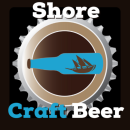This is the first of a three-part story about the Cambridge Beer festival.
Why now, why beer, why Cambridge?
Brett Summers must have felt as if he were being interrogated. He, along with Patrick Fanning, own the High Spot in Cambridge and with it, the distinction of being the second, overwhelming wave of craft beer tavern entrepreneurs in the area.
If Cambridge has a craft beer pioneer, it has to be Travis Todd. The long version of his story has been told elsewhere, but the short version goes like this: there was a time when the only place a person could purchase “Arrogant Bastard beer” was Ocean Odyssey.
No one really bought it, and Todd’s father, who owned the place gave him hell for his craft beer endeavors. History proved him right, though, and if the recent and continuing popularity of craft beer in Cambridge is any indication, it may even prove him more prescient than he realizes.
But if Ocean Odyssey was an oasis for craft beer 20 years ago, the High Spot is a beachhead today, and, although decorum led him to deflect the assertions, Summers is the air support. He provided a chunk of the funding and, with and because of the investment, the moral support that has allowed Fanning to transform Cambridge into a craft beer destination.
Fighting the beer mercs
I pushed Summers as to why he invested in a restaurant that would be known for its craft beer selection. Lots of places have $1.50 draft nights and do swell. As best as I could get, he thought craft beer was a worthwhile investment before it “officially” was. He believed in Fanning, who has a background in beer, stemming from his work with Southern Boys Concepts, the company that owns Evolution Craft Brewing, and that belief was sufficient. As it turned out, he was correct.
Craft beer, especially with the proliferation of crafty beers and what I’ll call craft beer mercs (people who invest in craft beer because it’s hot) is in an odd place right now. It’s the kind a place that brought about the craft beer bubble of the late 1990s. People who have money to invest sink it into beer because they think it’s inevitable that they’ll make a fortune. In the 1990s (and particularly and unfortunately in Cambridge during the Wild Goose years) when that turns out not to be the case they balk, ask for cuts or sell out. Today, those of us with a sense of that history are wary. We crave authenticity because the true believers won’t abandon us.
Speaking with Summers, I got the impression that this wasn’t lost on him. What he would have said (if he were a major investor in Twitter for example) is, “I know the difference between something sustainable and something that’s just a fad.”
But craft beer isn’t Twitter. It has suffered in the past at the hands of mercenaries. And no rational business person could ever say out loud that they weren’t a mercenary.
Evangelism is a cultural exercise
Spreading the word over at the RaR station at the Cambridge Beer Festival.
But he isn’t. Neither is Fanning.
What he is, and what Todd is, and what Fanning is, are people who are willing to put their money where their mouths are. In craft beer, too often and too increasingly, there is almost a stigma about doing the right thing, and the good thing and also making a living.
The craft beer evangelists in Cambridge aren’t brewers. We are what Malcolm Gladwell might call mavens. They have a sense of the cultural significance of something real and want to share it. Mavens help people find the words to describe the things they already like. And what they like is being able to make connections.
On some level, craft beer enthusiasts like being able to look people in the eye and talk about the beer they’re making. Ostensibly, this makes us better consumers. We protect good beer by learning about it, learning to tell the difference between merc purveyors and craft brewers. We want a person who can look us in the eye and tell us that they are part of our community, not taking advantage of it.
Next, we’ll take a look at the implications that come from establishing and promoting this kind of culture.
